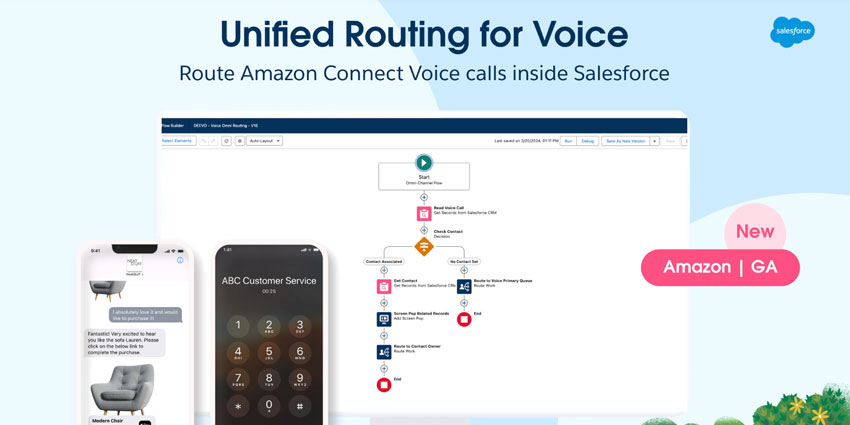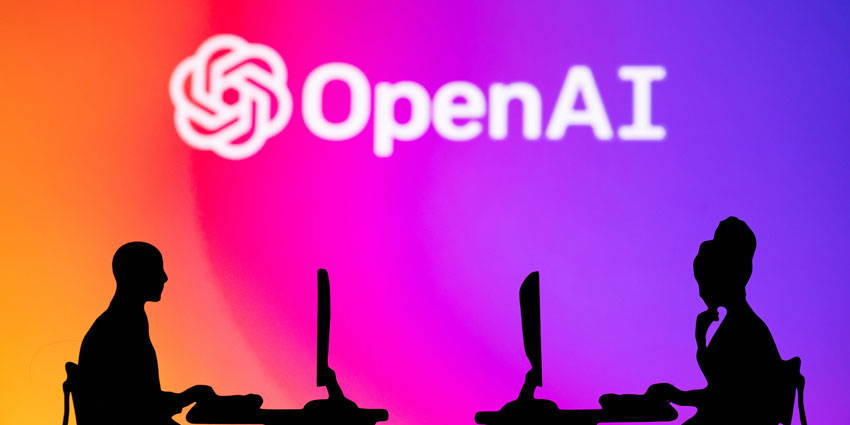If you want to run a successful business in the modern world, you need more than just amazing products and features – you need the right customer experience. Customer Relationship Management tools (CRMs) are software solutions built specifically to help you improve your chances of connecting with your target audience.
With these tools, you can track various parts of the customer journey, look for opportunities to make your customer’s lives easier, and find new sales avenues, all in the same place.
Microsoft Dynamics and Salesforce are two of the most popular CRM choices in the world today. Both solutions offer an exceptional range of amazing features, built with access to everything from artificial intelligence to custom reporting. Today, we’re going to be looking at the key features and functionalities of Dynamics and Salesforce, to help you make the right choice.
Microsoft Dynamics CRM Features
Microsoft Dynamics 365 is an entire customer experience platform, intended to help businesses remain agile and adaptable in a new age of customer service. The Dynamics 365 environment is a straightforward portfolio of business applications for delivering better operational intelligence and customer experiences. You don’t just get a service environment; you get a complete kit of modules.
As a recognised leader in the eyes of major analysts like Gartner, IDC, and many others, Microsoft Dynamics is one of the most popular picks in the CRM environment. For the purpose of this comparison, we’ll be looking at the “Customer Service” section of Microsoft Dynamics. This breaks down into both standard customer service and field service and offers features like:
- Virtual agents and knowledgebase portals
- Personalised customer interactions with tailored experiences
- Instant chat and omni-channel service support
- Access to marketing and sales modules for extra insights into behaviour
- Custom reporting and analytics
- AI-driven productivity tools to support agent performance
- Real-time signalling and alerts for customer opportunities
- IoT access and problem detection for services
- Integrated case management features to track customer conversations
- AI-powered predictive analytics
The field service module also means you can track employees in the field and give your people on the move access to the same essential information about customers, regardless of where they are. There’s also a Microsoft Teams and Dynamics integration, supporting real-time suggested chat opportunities contextual information and sentiment capture for when you work with clients in Microsoft Teams.
Salesforce CRM Features
Salesforce is also a market-leading provider of CRM technology, and one of the better-known names in the world. Widely regarded as the biggest CRM provider in the world, Salesforce offers a range of ways to manage customer experiences and relationships, including the Salesforce Customer 360 environment, and the Salesforce service cloud.
For a comparison to Microsoft Dynamics Service, we’ll be looking specifically at the Service cloud from Salesforce, and the features it offers. Like Microsoft Dynamics, you can connect your module from within the Salesforce ecosystem with countless other tools to help with sales, development, automation, and more. Features of Salesforce service include:
- Field service solutions for people on the move
- AI insights into potential revenue opportunities and lead tracking
- Automatic scheduling and intelligent routing
- Actionable report customisation and sharing features
- Omni-channel customer conversation tracking
- Appointment assistants for booking interactions with clients
- Smart productivity tools for collaboration
- Access to knowledge management and knowledge base
- Integrations with dozens of leading tools
- End-to-end secured data insights
Like Microsoft Dynamics has the Teams integration for better collaboration and customer experience, Salesforce has also made its own recent collaboration investment. Salesforce recently purchased Slack – a company that already had strong connections with the Salesforce environment. The Slack native connection will now make it easier to have conversations with clients within the Slack environment, or simply strengthen employee relationships wherever your teams are located.
Which is Best? Salesforce or Microsoft
Salesforce and Microsoft are both titans in the CRM landscape, offering amazing customer service solutions through omni-channel conversation tracking, in-depth journey mapping, and artificial intelligence insights. Both Salesforce and Microsoft also offer excellent security, resiliency, and reliability, thanks to their incredible technology ecosystems.
Salesforce is perhaps the best-known CRM in the world for companies in search of comprehensive tools for sales and customer service. There are countless courses and certifications available to help you strengthen your skills in Salesforce, and you get access to an amazing community to help you make the most of your service too.
Salesforce has added benefits like Einstein and the Customer 360 cloud to offer, comprehensive insights and opportunities to transform your company. However, it’s also one of the more complex tools to get used to, particularly if you’re new to the environment.
Microsoft, on the other hand, is a state-of-the-art technology innovator, with countless tools to offer for everything from collaboration to Business Intelligence. The Microsoft Dynamics environment integrates perfectly with the rest of the Microsoft space – including Teams. What’s more, it comes with a ton of support to help you get started, including guidance specifically for your vertical.
The CRM from Microsoft has security built-in from the ground up, and it’s much easier to get used to if you’re a beginner trying to strengthen your knowledge of your customer journey. However, you might find that Dynamics isn’t quite as extensive as Salesforce when it comes to Sales planning.
Microsoft or Salesforce? You Decide
It’s hard to go wrong with either Microsoft Dynamics or Salesforce as your CRM solution. Both companies have made it to the top of countless industry lists for CRM functionality, thanks to their amazing features and intuitive tools.
Microsoft Dynamics is likely to be the right choice for people who already feel comfortable with the Microsoft environment. If you use Microsoft BI and Teams, then you’ll be able to get to grips with Dynamics in no time, particularly with so many great integrations to explore. Salesforce, on the other hand, might be the choice for you if you’re looking for an infinitely scalable tool for intelligence customer experience analytics, and extensive sales automation. Good luck making your choice!







